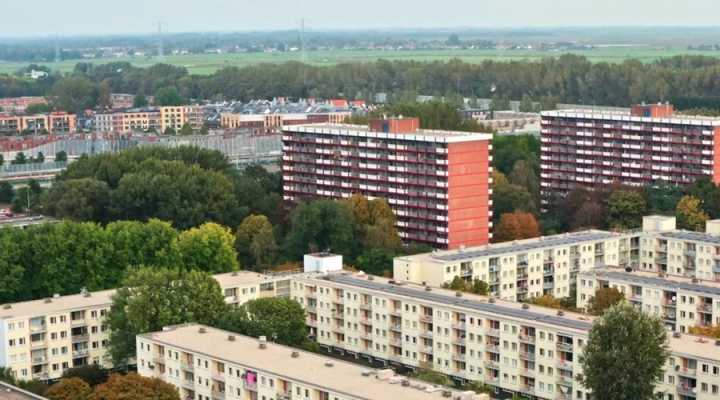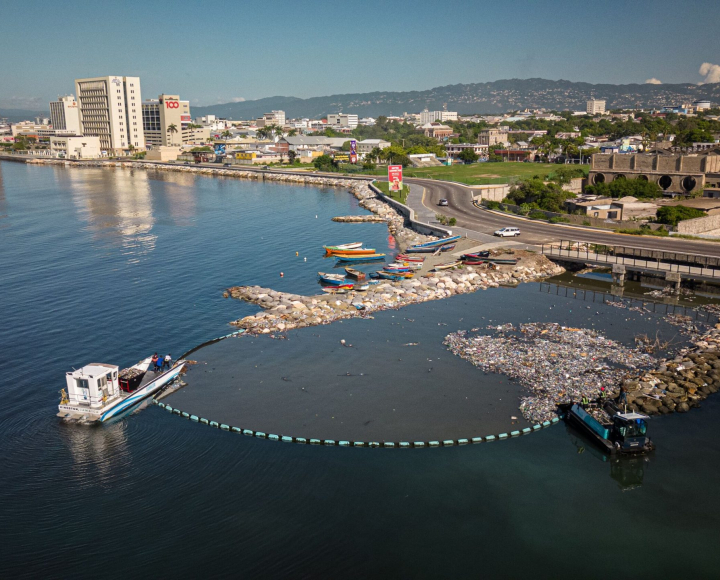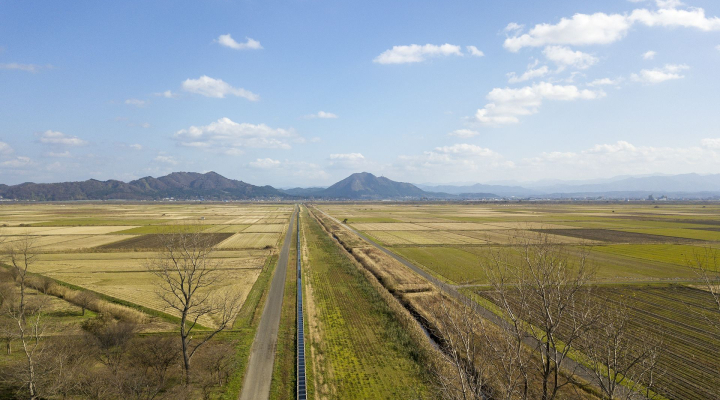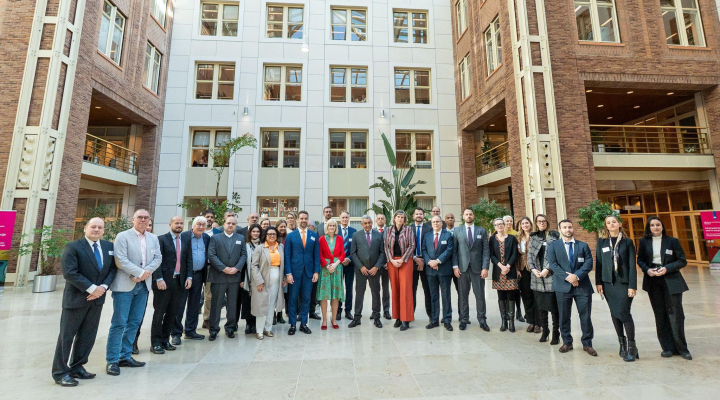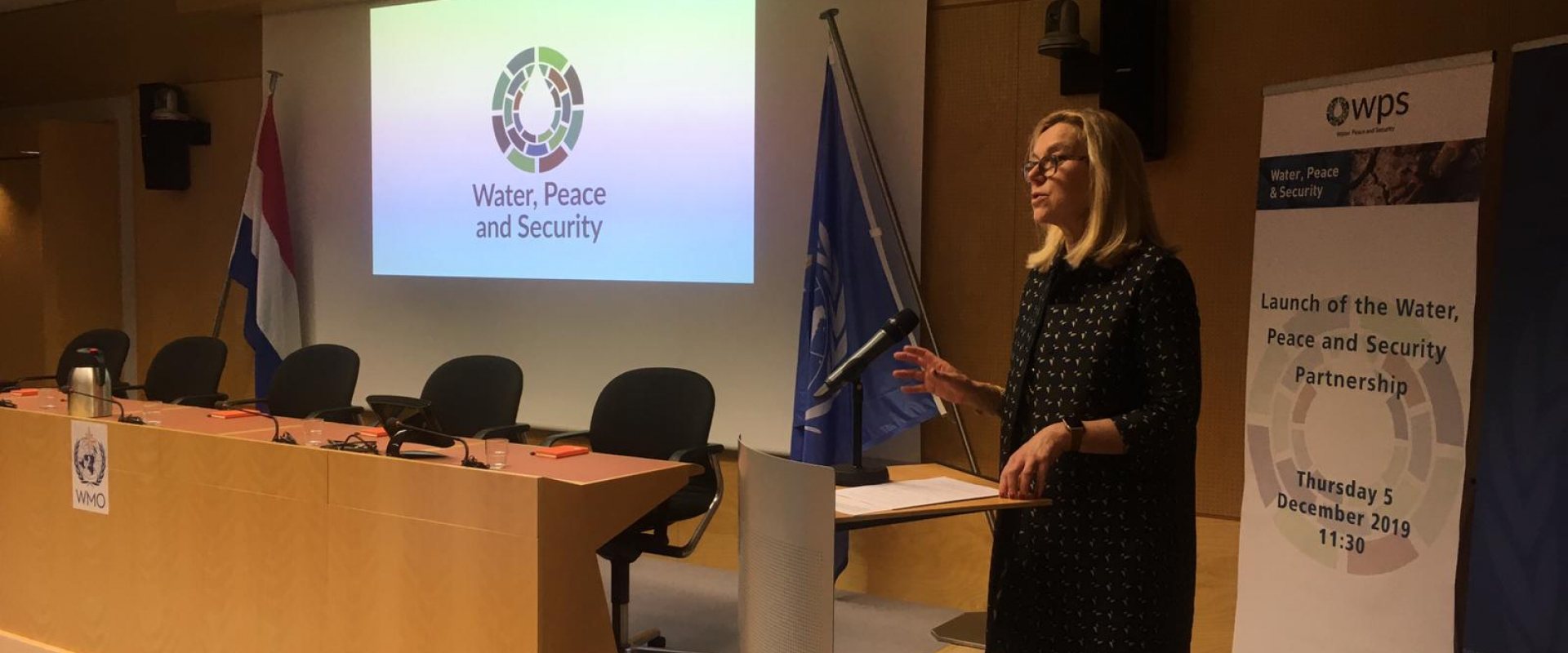
Self-learning app warns for water-related conflicts
The Water, Peace and Security (WPS) partnership has launched a self-learning app that can predict water-related risk violent conflicts up to 12 months ahead of time. It enables governments and local stakeholders to intervene and help defuse conflicts.
Dutch minister Sigrid Kaag for Foreign Trade and Development Cooperation presented the tool at the World Meteorological Organization in Geneva on 5 December.
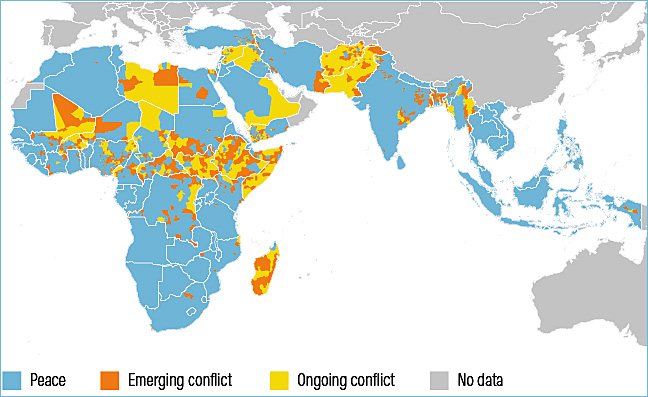

Early warning
According to the Water, Peace and Security (WPS) partnership, the app predicts conflicts about water are likely to flare up in Iraq, Mali and India in the coming year.
The early warning tool spots the likelihood of conflicts - including water-related violence - in Iran, Nigeria and Pakistan.
Self-learning
The WPS Global Early Warning Tool uses machine learning and makes predictions based on the analyses of patterns between violent conflict and more than 80 environmental, economic and social variables going back 20 years, and the comparison of those patterns to current conditions to pinpoint potential hot spots.
This includes data on precipitation and droughts from satellite sources, and socio-economic and demographic data on everything from population density to past patterns of violence. The tool has been trialled in Mali where water scarcity is a factor in violence between Dogon farmers and Fulani herders. According to the WSP partnership the trials suggested an 86 percent success rate in identifying conflicts with 10 casualties or more.
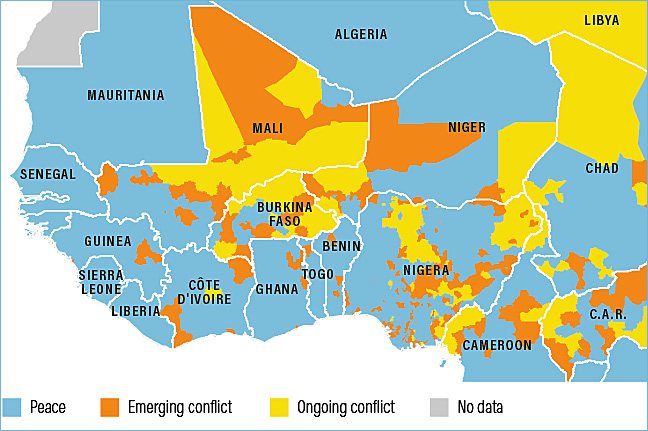

Interventions
Karin Meijer, senior researcher water scarcity at research institute Deltares, is one of the pioneers of scientific research on water-related conflicts. She thinks it is crucial to better understand people’s response to water shortage and that this tool can help to prevent conflicts.
‘In the regions in which we work we aim to develop, together with local researchers, policy makers and NGOs, a better understanding of how people respond to situations of water shortage, in combination with all other social economic and institutional factors’, she says. ‘This understanding is pertinent to assess the possible consequences of water shortage and, what is even more important, to implement effective interventions to prevent these consequences’, Meijer adds.
Overlooked risk factor
‘Water is often an overlooked risk factor in conflict,” said Charles Iceland, a senior water expert at the World Resources Institute, part of the WPS partnership. ‘This could be a breakthrough in development and peacekeeping operations, giving time to intervene before bloodshed occurs.’
About WSP partnership
The Water, Peace and Security partnership is comprised of six organizations who specialize in environment, development and international security: IHE Delft, World Resources Institute, Deltares, The Hague Center for Strategic Studies, International Alert and Wetlands International.
There are three affiliated partners, including the Pacific Institute, Oregon State University, and New America. After two years of development the combined validated knowledge, skills and the access to various networks, the website including the tool was launched today.
The WPS Global Early Warning Tool can be explored on the WPS-website.




